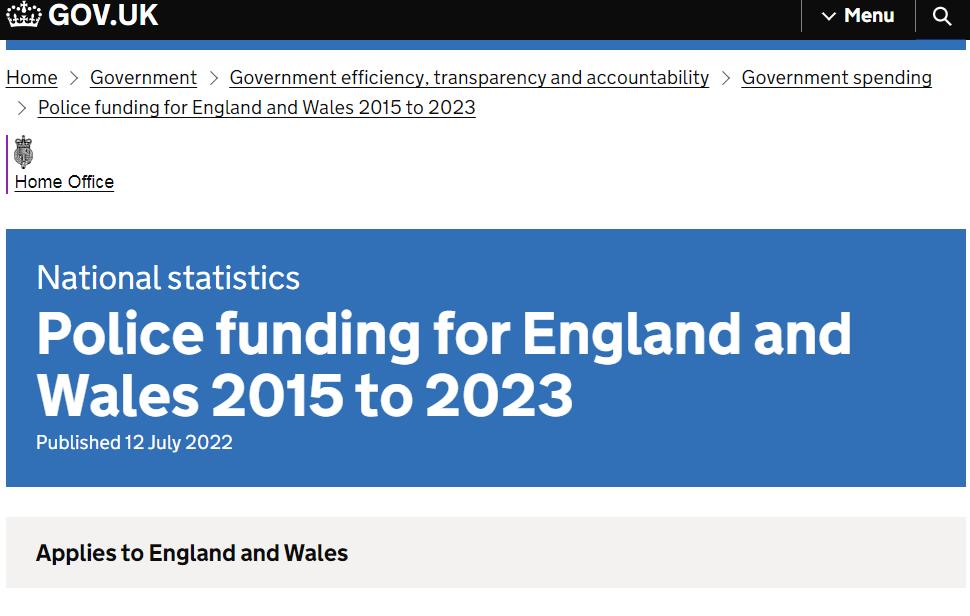by Chris Black

The cost of racial and ethnic diversity is incredible.
In just 6 years the United Kingdom has seen a 5 billion pound increase in spending on police services (www.gov.uk/government/statistics/police-funding-for-england-and-wales-2015-to-2023/police-funding-for-england-and-wales-2015-to-2023) in England and Wales, a 41% policing budget increase.
In just the first 9 months of 2023 Ireland’s Garda overtime budget has surged by 54%, and a further 25% increase is planned for 2024.
(www.citizensinformation.ie/en/money-and-tax/budgets/budget-2024/)
Between 1991 and 2019 the cost of American police departments increased by a staggering 254% (www.americanactionforum.org/research/assessing-calls-to-defund-the-police-police-budgets-and-employment-levels/).
All levels of government spent just 40 billion dollars to police the entire United States in 1991, by 2017 police budgets were just shy of 200 billion dollars.
Diverse societies are crime ridden and expensive societies.
In 1981, England (not the UK as a whole) had a population of some 45 million people, 95.4% of whom were White. In that same year the British state spent less than £2 billion on policing in the entire United Kingdom.
Today, with a population exceeding 56 million, and a non-white population some 10-plus million strong, the policing budget for England (and Wales) will exceed some £17 billion.
Today roughly 27%, or 24,200 of the current prisoners in the UK, are racial foreigners.
The British government spends roughly £48,409 for each prisoner (assets.publishing.service.gov.uk/government/uploads/system/uploads/attachment_data/file/1050046/costs-per-place-costs-per-prisoner-2020_-2021.pdf) it houses, meaning the cost of the non-British prison population is some £1.16 billion annually.
The NHS in England, with a budget of roughly £160 billion for 2023 (www.bma.org.uk/advice-and-support/nhs-delivery-and-workforce/funding/health-funding-data-analysis), will spend some £45.6 billion on the non-White and non-British population.
In 2023 the budget for schools in England reached roughly £57.3 billion (ifs.org.uk/publications/annual-report-education-spending-england-2023), some £20 billion of which will be spent on non-White and other non-British students.
Britain is a wealth country with a productive White population, but a growing non-White demographic cohort is impoverishing the nation.
Australia serves as yet another example of the astonishing cost of diversity.
Aboriginals are 3% of the Australian population (www.abs.gov.au/statistics/people/aboriginal-and-torres-strait-islander-peoples/aboriginal-and-torres-strait-islander-people-census/2021) yet compose 32% of the nation’s prison population. (www.abs.gov.au/statistics/people/crime-and-justice/prisoners-australia/latest-release)
Foreign born persons compose a further 18% of the nation’s prison population.
Spending on criminal justice in Australia is the highest on record, at over 21 billion AUD. (ipa.org.au/research/rights-and-freedoms/the-cost-of-prisons-in-australia-2023)
This number is expected to balloon further as the nation is surpassing 100% prison capacity.
White Australians are footing the bill for an increasingly diverse nation which they did not ask for and which polling shows they are increasingly unhappy with. (whitepapersinstitute.substack.com/p/white-australia-is-in-crisis-12)
A recent Dutch academic study of the country’s public spending indicates that the government is more eager to support migrants than its own citizens through investing in core priority sectors, with migrant subsidies averaging an annual €17 billion over the past decades.
The paper “Borderless Welfare State: The Consequences of Immigration on Public Finances” looks into the tangible implications of mass immigration on Dutch public funds.
The authors of the study compared official government spending data.
According to the data, immigration relief policies peaked at €32 billion in 2016 due to the 2015 European migrant crisis.
The study also suggested that the current Dutch government’s financial support programs for migrants significantly exceed the average expenditures on education, healthcare, justice, social security and allowances.
In the years 1995-2019, the total cost of immigration amounted to over €400 billion ($430 billion at the current exchange rate).
It is time to reverse this trend in all European countries.
Views: 430